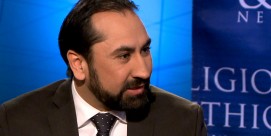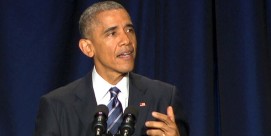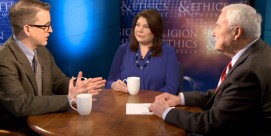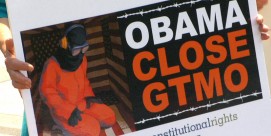Douglas Koopman: Rhetorical Nod to Faith
In 2000, I was fortunate enough to attend the Republican Convention in Philadelphia as an instructor in an experiential learning program for college students. That convention, which nominated then-Texas governor George W. Bush for president of the United States, was noted for its overt attempts to present a diverse public face to television viewers. Convention organizers paraded the widest possible variety of racial, ethnic, cultural, and age differences, all supporting the GOP. “Looking diverse” was the first goal in allocating prime-time podium minutes and around-the-clock media availability. It was a concerted effort, and it felt to me, as an up-close observer, a forced and artificial one, given the homogenous nature of the GOP and, particularly, its delegates and candidates.
While it may have reflected a good strategy, and even the personal disposition of that year’s Republican nominee, it rang hollow as a true representation of the Grand Old Party. No one can state with certainty whether those convention efforts helped Bush win in 2000, in what should have been, by most economic and political indicators, an easy Democratic year. In such a close race, perhaps it made the difference. But that did not take away the artificial feel of the convention nor the confirmation of that feeling in the lack of substantive movement toward diversity by the party in the eight years hence.
I have much the same impression in observing from afar the officially sanctioned faith expressions and other faith-related efforts surrounding this week’s Democratic convention in Denver. Faith is all around to see — and we’re sure to see it easily — with opening worship, daily faith-friendly events, greater willingness of prime-time speakers to give nods to faith in at least a generic sense, and a concerted effort not to criticize explicitly religious public language. But the faith on display is one fully consonant with longstanding Democratic Party positions on every key issue that have been in party platforms for years. It “feels” fake — much like the Republicans in 2000. There is this week, so far at least, no convincing evidence that this “faith talk” is anything more than merely a new strategy by party operatives to gain an additional slice of a voter demographic in November, so that once they win the party can govern as usual.
 True faith, it seems to me, fits comfortably within no political party, and certainly not today’s Republicans and Democrats. A party that claims to embrace faith anew must show that new embrace in some changes from prior policy, not mere “acknowledgment” that there is a moral dimension to issues that ultimately get settled on the traditional side. The rhetorical nods, the small “tweaks” in the party platform, and the controlled events of this week are not enough.
True faith, it seems to me, fits comfortably within no political party, and certainly not today’s Republicans and Democrats. A party that claims to embrace faith anew must show that new embrace in some changes from prior policy, not mere “acknowledgment” that there is a moral dimension to issues that ultimately get settled on the traditional side. The rhetorical nods, the small “tweaks” in the party platform, and the controlled events of this week are not enough.
Obama, by all evidence a thoughtful person of sincere Christian faith, has a chance to change that impression tonight. What I’m looking for is one position he has taken that has hurt, rather than enhanced, his and his party’s longstanding policies and electoral motives and that can arguably be based on a sincere faith which grapples thoughtfully with its consequences for public life.
I’ve not seen it yet. But I still have the audacity to hope that I will.
–Douglas Koopman is a professor of political science at Calvin College.







